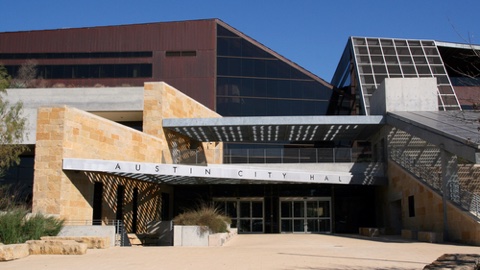
If you’re a member of the tech sector then smart cities and the Internet of Things are not new topics. In fact you may be wondering why they have not become more mainstream until just recently. But make no mistake: there is swift change taking place as cities large and small begin to explore and experiment with how they can make their cities smart, integrating connected tech into the delivery of government services.
There has been a recent explosion of conferences, sites, and conversations between public and private sector enthusiasts dedicated to smart cites. The idea of a smart city is beginning to become more high profile and more people are taking notice.
And so I’m wondering when citizens and residents take notice of smart city projects, what are they thinking? Do they feel informed, included and proud? Or do they feel left out, excluded and concerned?
As consumers we are beginning to slowly understand and consider the relationship between convenience and privacy. Every time we download an app, use voice or face recognition technology, visit a web site, share or create a social media post we are making that exchange. Some may argue that consumers are doing this unknowingly and unwillingly. But the fact remains that we do it everyday.
So how does this work when it is a city – and not a company – that is asking for this level of trust and exchange? When there is a streetlight with sensors, collecting data and recording video, who collects the data? Who owns it? Who manages it? Can it be sold? How much is aggregated and how much is personalized? How can someone opt out?
When a city is well-optimized, it all seems to unfold magically. And that is the great promise of smart cities. When a city is not optimized, the friction causes frustration and tension. Potholes and missed buses become a sign that the city is out of touch.
I have great compassion for how overwhelmed city staff must be at this point in time. Not only do they need to do more with less, they need to transform away from siloed service providers and into innovation centers. To add to the pressure, citizens engage through mobile phones in every aspect of their lives with the exception of government. Today we all demand that everyone and everything we interact with be technologically accessible, responsive and intuitive. This is not easy for cities to do.
These are all important questions, and I have no doubt city leaders and staff are carefully and thoughtfully considering all of the issues. But once again cities need to stretch themselves and go beyond traditional means. It’s not enough to post something in the newspaper and add a city council agenda item. There must be a new way to communicate and creatively excite citizens and residents about the change that is happening – or will quickly happen – in their own communities. And this dichotomy also comes with a great opportunity to create positive change and citizen engagement on an entirely new level and in a new way.
Citizen engagement is not a new conversation when it comes to urban design or even city budgeting. The City of Hamburg in Germany launched NextHamburg back in 2009. I saw signs of participatory budgeting in Cambridge, Massachusetts when I visited there last year. In San Antonio The Dignowity Park Project is using design-thinking principals to “unify two segregated parks to create…a safer, more inclusive and beautiful place for urban core communities to connect and play.” There are thousands of examples that we can all learn from and craft ways that they can be implemented for smart city projects.
So yes cities have a lot to do. But I strongly believe that engaging or, at the very least, messaging citizens about what smart city technology is being considered, how, when and where it will be implemented is critical. I’d really like to learn more about what has been tried, what is not productive and what has proven to be a sure fire success. If you have a connection to a city that is working on this or links to projects that are examples of smart city citizen engagement and communication, please share by tweeting to @ChelseaMcC. Thanks in advance for advancing the conversation. We’re all in it together.


